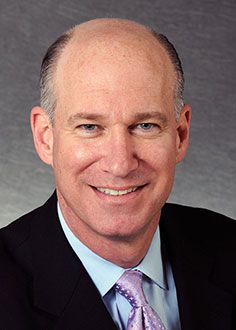
Congress has dealt with the “fiscal cliff” in part, but it has left important business unfinished. Cuts to medical research and training now set to take effect through the sequestration process, scheduled to take effect in March, could imperil efforts at all of our universities to improve health and extend life. Cutting these programs will have an immediate impact on our campuses, and will do long-term harm that Americans could feel for years.
National Institutes of Health funding supports research on cancer treatments, HIV/AIDS and other projects that prevent disease and reduce suffering. At the George Washington University, Georgetown University and Howard University, NIH funding totals more than $134 million, with overall federal research funding exceeding $200 million.
The projected 8.2 percent sequestration cut in discretionary domestic spending, which includes the NIH grants, could mean more than $16 million in net cuts to medical research at our three institutions. Interrupting research already under way not only stalls progress, but wastes untold millions already invested.
At Georgetown’s Lombardi Cancer Center, researchers in Robert Clarke’s lab have worked for many years to prevent breast cancer in women at high risk for the disease. His work to improve the effectiveness of a widely used anti-estrogen treatment could be a life-saving intervention for tens of thousands of women. The project is ready to move to human clinical trials, but loss of funding could halt it at this critical juncture.
At George Washington’s School of Medicine and Health Sciences, Gary Simon’s project to control the spread of HIV has made great strides. His team is investigating the virus, while also identifying people who don’t know they are infected, thus limiting the virus’s spread. Loss of funding for Simon’s studies would be devastating for the District, a city with higher HIV/AIDS infection rates than Ethiopia, Nigeria or Rwanda.
At Howard’s College of Medicine, Thomas Mellman oversees several clinical and translational research projects related to sleep and how sleep affects overall health. These include sleep patterns and urban stress, post-traumatic stress disorder and hypertension. Understanding the interactions of sleep and health problems can benefit all Americans.
At Georgetown, George Washington and Howard, we are waiting to hear how sequestration will affect our campuses. On top of this, the House of Representatives approved a budget resolution last year that would impose cuts of nearly 20 percent to nondefense discretionary accounts starting in fiscal 2014. The combination of these cuts would mean immeasurable losses to NIH-funded medical research that has been decades in development.
We all share concerns about how the economy will fare if Congress cannot find an answer to the “fiscal cliff.” But with 39,500 women dying of breast cancer in the United States every year and 1.2 million people living with HIV, let’s not throw away the investments already made toward treating these diseases.
Continued cuts to discretionary programs such as medical research are not the solution. Let’s call on Congress to find a balanced approach that puts revenue and entitlements on the table. A strong America requires investments that protect our economy and our health.
--
Howard J. Federoff is executive vice president and executive dean of the Georgetown University Medical Center. Jeffrey S. Akman is interim vice president for health affairs and dean of the George Washington University’s School of Medicine and Health Sciences. Mark S. Johnson is dean of Howard University's College of Medicine.


